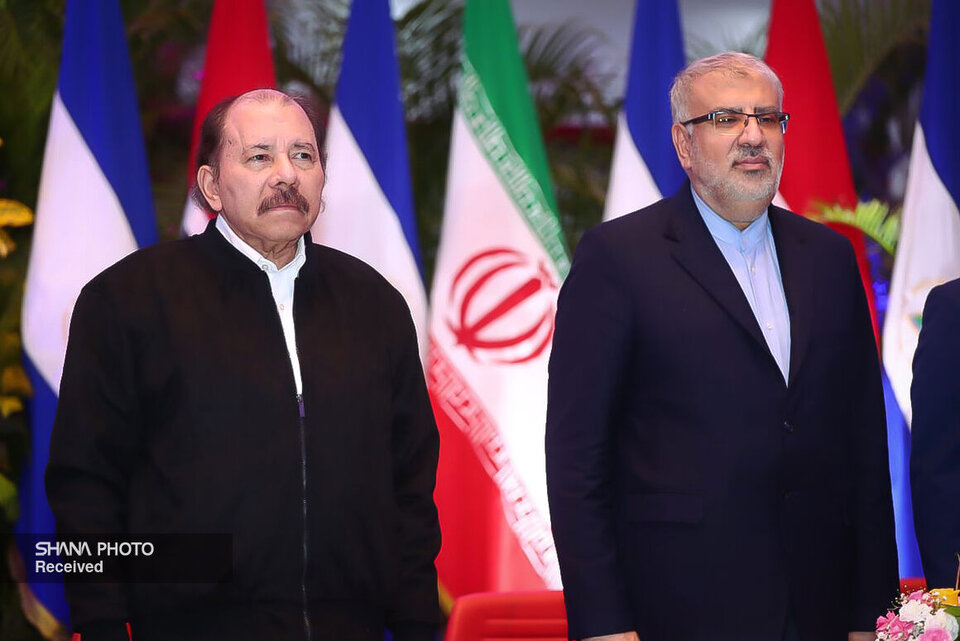Energy diplomacy is not only used in oil and gas consuming countries, but in many cases, producing countries also use energy as a diplomatic tool. Such a thing is a necessity for Iran, which has rich and vast energy reserves. Therefore, over recent years, the issue of energy diplomacy has always been the focus of the Petroleum Ministry as an important issue, which, of course, has been associated by ups and downs.
Meanwhile, the visit of Iran’s Minister of Petroleum Javad Owji to Latin America, which led to the signing of four memoranda and two agreements in the field of oil and two agreements in the field of agriculture, is important from various economic and political dimensions and is a positive step in developing energy diplomacy. During the visit, talks were held on the development of oil fields, improving trade of oil and refined petroleum products, and refining cooperation between Iran and Venezuela and with Nicaragua. Also development and production in oil and gas fields, upgrading and modernization of refineries and utilization of refinery capacities, training manpower and experts in oil, gas and petrochemical industries, export of engineering services and technology transfer and development of export markets of crude oil, gas condensate and petroleum products were at the heart of the negotiations and memoranda of understanding.
Latin America's importance in Iran's foreign policy and energy diplomacy lies in the fact that the region had long been known as the heaven for the United States. Over the years, the United States has sought to expand and consolidate its influence in the region in various ways, and has put significant pressure on countries that oppose it in Latin America. Most of these pressures have come from leftist and anti-American governments or politicians, and have led to imposition of economic sanctions, especially in the energy sector. As in recent years, Venezuela has been hit by the US energy sanctions. The sanctions have both reduced the country's production and disrupted Caracas exports’ trend.
However, when US political pressure on Caracas and the Maduro government escalated with the creation of an energy crisis in the country, Iran was able to rush to Venezuela's aid by sending energy shipments. The same is true of Nicaragua against the United States. This country is in dire need of development in the field of energy and has shown considerable interest in expanding cooperation with the Islamic Republic of Iran. Therefore, in Nicaragua, as in Venezuela, there is a very positive atmosphere for cooperation with Iran in the field of energy. Accordingly, cooperation in completing the 100,000-barrel Nicaraguan oil refinery, developing oil and gas fields, and supplying crude oil and petroleum products to the people of this country are among the most important pillars that may shape Tehran's energy diplomacy with Managua.
In Iran, on the other hand, the 13thadministration’s approach is based on expanding economic and political relations with Latin American countries, especially Venezuela and Nicaragua. Especially since Latin American countries, regardless of US sanctions and pressures, are willing to improve their relations with Iran. Therefore, supplying energy to Nicaragua, as well as rebuilding Venezuela's oil industry and cooperating in various energy sectors in these countries may be a significant economic advantage for Iran.
With such description of development and production of oil and gas fields, upgrading and modernization of refineries and utilization of refinery capacities, training of manpower and expertise in oil, gas and petrochemical industries, export of technical-engineering services and technology transfer, development of crude oil export markets, gas condensate and petroleum products are mentioned as the most important axes that could be considered in prospective interactions between Iran and Latin American countries.
Undoubtedly, Iran's technical, professional, technological and economic capabilities are such that it could play a decisive role in the world energy economy. With its vast oil and gas reserves in the world and long experience in the field of energy, Iran has the opportunity to establish ties with the countries of this region if it adopts active diplomacy and pays attention to potential future markets in the developing countries in Latin America.
At the same time, energy diplomacy could provide the ground for easing economic sanctions against Iran, and help other countries that have been similarly subject to US sanctions. Accordingly, the Iranian Minister of Petroleum’s visit to Latin America marks the beginning of a new chapter in Tehran's interactions with countries in the region, focusing on energy, and may transform many international equations in the field of oil and gas.
By Shuaib Bahman
Courtesy of Iran Petroleum


Your Comment